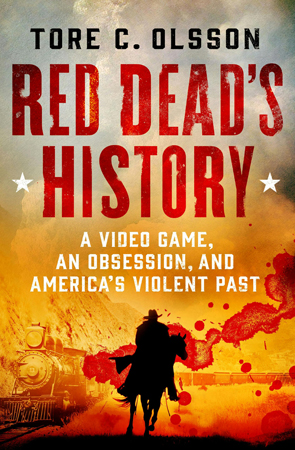It’s no secret that the Red Dead series of games, especially the last two parts, remarkably depict the USA during the end of the Wild West era. For Tore Carl Olsson, an associate professor of history at the University of Tennessee, it was a big surprise that none of his colleagues thought to tell the story of that era through the lens of Rockstar Games’ western. Having played RDR 2 during the pandemic, he decided to incorporate the video game into his curriculum. And this spring, he even brought in Rob Wiethoff and Roger Clark, the actors who portrayed the two protagonists, creating a lesson that students will surely remember.
The historian also decided to compile all his thoughts and findings on this topic into a printed publication, writing a book titled Red Dead’s History. Today, his work saw the light of day and is now available for purchase. On the official publisher’s website, prices are as follows: hardcover book — $30, digital version — $15, audiobook — $27. The audiobook is narrated by a hauntingly familiar voice — the voice of Arthur Morgan.
In a detailed interview with IGN, the author discussed his work. He mentioned being impressed by the exact atmosphere of the time captured in Red Dead Redemption 2, though not necessarily its historical accuracy. For instance, the Ku Klux Klan was not as active in the 1890s. They were active decades earlier and later, but not in the period depicted in the game. Such nuances are elaborated upon in his new book.
According to Olsson, the lectures are popular even among students for whom studying history isn’t mandatory. This also inspires continued learning through video games. He is interested in themes of World War II and the Cold War in Call of Duty, organized crime in Mafia, and mid-20th-century American culture in L.A. Noire. His next book, he reveals, will focus on Grand Theft Auto: Miami of the 1980s in GTA: Vice City (immigration, relations with Cuba, cartels) and Southern California of the 1990s in GTA: San Andreas (African-American community, crack epidemic). These iconic games, in his view, are not representations of historical accuracy but rather a collection of stereotypes that nonetheless form an opinion about America at certain periods. As for GTA 5 and GTA 6, he leaves those for future generations to explore, as narratives about the contemporary setting will need to be told later.
Source: gta.com.ua
